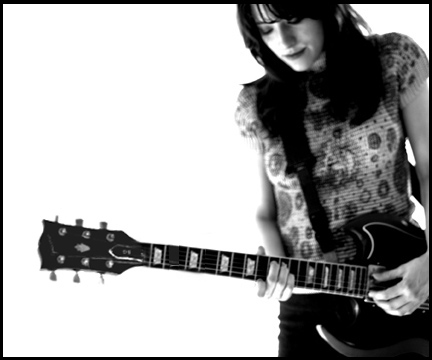
forgive me for the really bad metaphor, but it was an on the fly thing and i didn't really want to go with something cliche, like chocolate and onions.
in one of my previous blogs i briefly implied that musical scenes more often than not fail to encourage good songwriting.
"The ultimate failure of scenes and things that categorize music into a small box is that they emphasize the technical aspects of the music being performed or listened to, not songwriting."Granted, this is a simple reduction of something that is a little more complex as scenes can be, so I'll go into a little more detail. First, I'll make a statement as to what I feel categorizes a scene.
1.
Style: There is a certain way of dress that allows scenesters to define themselves as part of their own subculture. It allows them to not only let others know they are a part of it, but it also helps them define themselves as a human being as being a part of something larger than them that is special. For many people music isn't just music. Life is routine and the daily grind can tend to make us feel very unspecial, like our lives are virtually meaningless. Style allows people in a scene, especially those who aren't contributing to the music, to define themselves a part of something they see as great so that they don't have to define themselves by their employment, which is typically low wage and service related. A lot of us grew up with working parents who didn't have much of a life of their own. We always told ourselves we'd be better than that, but failed to learn a skill that would separate us from the majority. So, style is an easy way to do that.
2.
Youth and Emotions: One of the most important aspects of a thriving scene is its ability to emotionally connect to the people around it, especially the younger generations who have the expendable time and energy to be a part of something that has no monetary or job-related gain for the majority of its participants. Once you've past a certain age and your life is full of more and more responsibilities you don't have the time or desire in music unless you actually love the music. Most of the general population you know has a cd collection of music that came out before they moved out on their own and had financial responsibilities. They will own the cd's from their favorite high school/college bands and if they have anything new it will usually be from those same artists or their solo projects. They just don't have the time for new music or anything that seems so frivolous to someone who is concerned about children, mortgages, bills, etc. Also, these people have mellowed out a bit since they were 16. If they listen to new music it probably won't be something that has the youthful anger/angst that most thriving scenes emote. Mellow attitudes don't usually rally people together. Ultimately, this is why once you pass a certain age you are no longer the target of the music industry. They know you don't buy cd's anymore and if you do it's not their market.
Music: It depends who you ask, but most people would probably say that the music is ultimately the most important aspect of a scene, though I would disagree. It's way too complicated to say that it's all about the music. The emotional aspects are probably more important. But, I digress.
Now to the subject of the title. Musically, scenes are more about the instruments you play, the loudness, the softness, the style of singing, subject of lyrics, the clothes you wear, the attitude you have on stage, whether you care or are apathetic, the speed, etc. ultimately, the show will draw if it falls in line with the style and emotional desires to be a part of the scene. people will come because all of their friends will be their and this will make them feel special, needed and a part of a group. most of them will say they like your music and dance to it, but wont likely buy the cd. if they do, they probably won't listen to it much. in the loneliness of their room they'll probably be more likely to break out The Cure, David Bowie or Bob Dylan. That's why, in my original quote, I claimed that most scenes, even the really thriving ones will produce only a handful of successful bands out of the thousands that didn't go far. The ones who rise to the top were the ones who wrote good pop music, the kind of music that you actually want to listen to when your friends aren't around. In the end, scenes involve too many non-music related facets to put any real emphasis on songwriting. It's easy to get lost in the more shallow aspects of a scene and forget that you need to make a great record first.










